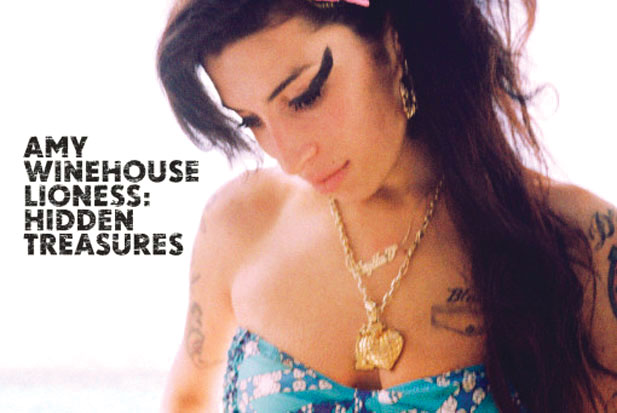Hidden Treasures of Amy Winehouse

BY BURAK ŞAHİN (IR/IV)
burak_s@ug.bilkent.edu.tr
The other day, a friend of mine said that if a person died, they had completed all their missions in this life. She meant that the person would come back to this earth through reincarnation and would have new duties to do. And so, my friend said, "Don't cry about death." She might be right, but I don't believe that Amy Winehouse had completed all her missions in life. She had more to write and more to sing…
Mark Ronson and Salaam Remi, who worked with Amy Winehouse, have made some selections from her unreleased material for those who like me think that she had more to sing. The album, "Lioness: Hidden Treasures," was released on December 5. Amy's two collaborators went through the album, track by track, on NME. Here's what they had to say:
"Lioness: Hidden Treasures"
Our Day Will Come
Remi: "What first impressed me with Amy was that I could show her a song today and she could spit it back out at me tomorrow like she had known it all her life. With 'Our Day Will Come' it really was as simple as that."
Between the Cheats
Remi: "It's such a simple line; she was talking about a relationship, what went on between the cheaters, it was her classic wordplay to link it back between the sheets."
Tears Dry
Remi: "When you listen to what's being said - 'All I'll ever to be to you, is a darkness that we knew, with deep regret I've grown accustomed to' - this was the kind of mood that was how she'd normally write, on an acoustic guitar at 85bpm."
Will You Still Love Me Tomorrow
Ronson: "The ways she turns those different phrases and melodies are so clever. She was a jazz singer at heart so had that thing of never singing a melody the same way twice. Which used to infuriate me when I went to her concerts."
 Like Smoke
Like Smoke
Remi: "She had written more lyrics, she just didn't get a chance to record the rest of them. I flipped it on its head and we had ideas of where we could go with it, but when we came to put together this record, this was what felt right to do with Nas."
Valerie
Ronson: "When we started the song it had a kind of '60s Curtis Mayfield arrangement… It's a little more jazz tempo and it's super soulful. I still like the original version more, and when you heard her do it live it's much closer to that arrangement."
The Girl From Ipanema
Remi: "That was my introduction to her, her walking in with an acoustic guitar. Remember that in 2002 there was no Adele. So for Amy to walk in and be able to sing like that it was like, 'Wow, this is different.'"
Halftime
Remi: "The lyric goes back to 'halftime,' like she would be learning in music class, but she took that idea and turned it into a [song] for her. Now it feels like Erykah Badu or Jill Scott."
Wake Up Alone
Remi: "Most of Amy's songs started with a guitar and a vocal and basic beat, if there was any beat at all. So it was really about her being able express herself lyrically and then find the chords she wanted to use and then get it arranged after."
Best Friends
Remi: "Once again this was her taking p*** out of her best friend. She told me that her best friend would run out of the venue when the song was being played just because she couldn't believe that Amy was taking the p*** out of her like that."
Body And Soul
Tony Bennett (speaking shortly before Amy's death): "Of all the contemporary artists I've worked with, she was the most natural jazz voice. But I'd like to talk to her, and what I'd like to say to her is very personal. I've also had a moment of insecurity and darkness and was able to pull out of it."
A Song For You
Remi: "It was a time when I wish I'd had video cameras in my eyes so I could play it back because it was just such a moment. It was like somebody singing a song at a funeral where you're totally overwhelmed and you're just barely holding yourself together."